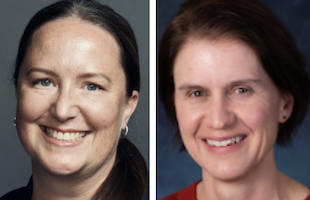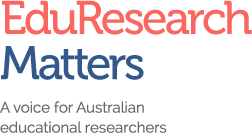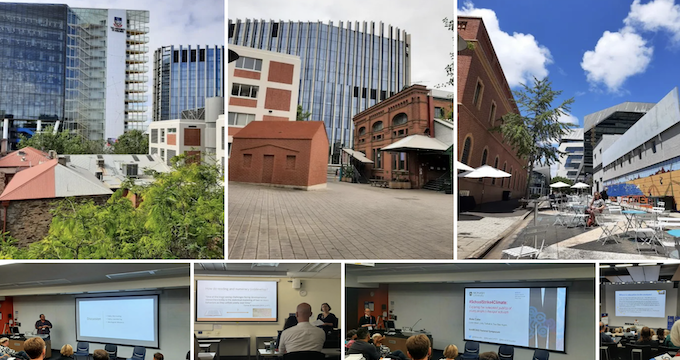What do you get when governments pour millions of taxpayer dollars into a charity with the power to shape what happens in Australian classrooms? You get the Australian Education Research Organisation (AERO) – and with it, the risk that private and commercial interests can steer future directions in education policy and research. Defenders of AERO are quick to claim that it is trustworthy because it is a “publicly funded, independent body”. But in a complex education system where these words carry popular sway, it’s worth asking: independent from what, exactly?
The lowdown on AERO’s status and structure
AERO’s structure is different from other national education bodies that also receive public funding. For example, the Australian Curriculum Assessment and Reporting Authority (ACARA) is an independent statutory authority established by legislation. It takes direction from Australia’s education ministers. That’s quite different from AERO, which is a not-for-profit company limited by guarantee.
AERO’s members include all the ministers of education. Back in 2020, they agreed in principle to invest $50 million in AERO over four years, with the Australian Government to fund half, and the combined state and territory governments to fund the other half. Australia’s Education Ministers take advice from AERO.
This is how AERO has achieved power and influence over education reform.
If AERO is publicly funded, why is it also registered as a charity?
There are several strategic, financial, and legal advantages to registering as a charity with the Australian Charities and Not-for-profits Commission (ACNC). Being officially registered can signal legitimacy and build public trust. Also, many government and philanthropic grants require ACNC registration and in some cases, Deductible Gift Recipients (DGR) status.
The ACNC requires registered charities to report regularly to maintain their registration and eligibility for tax concessions. All registered charities must submit an Annual Information Statement within 6 months after the end of their reporting period. This statement must include information about responsible persons, the organisation’s activities during the year, beneficiaries served, financial information, and information that satisfies governance standards compliance.
A large charity like AERO, with an annual revenue over $3 million must provide financial statements that comply with Australian Accounting Standards Simplified Disclosures, and an auditor’s report. These are published on the ACNC website.
Make no mistake, AERO has influential and cashed up backers
To truly understand AERO, it is important to understand its origins. In 2014, the UK Education Endowment Foundation (EEF) began funding ‘Evidence For Learning’ (owned by Social Ventures Australia or SVA, a venture philanthropic organisation). It was asserted that SVA’s ‘Evidence For Learning’ was a ‘pilot’ for AERO. Social Ventures Australia advocated and lobbied for AERO over a period of ten years.
In 2016, then Treasurer Scott Morrison commissioned a formal inquiry into the ‘National Education Evidence Base’ via the Productivity Commission. The draft Productivity Commission report explicitly recommended modelling a new education evidence body on the UK Education Endowment Foundation, which would ‘leverage’ the work of Social Ventures Australia. The final Productivity Commission report was more tentative, although the Education Endowment Foundation features prominently and is upheld as a model institution.
In 2018, EEF launched a five year project titled ‘Building a Global Evidence Ecosystem in Teaching’. This was part of its ‘what works’ approach and the stated goal was to establish:
EEF-style organisations in partner countries to act as evidence brokers and encourage the adoption of evidence-based policy at a national level.
AERO was established shortly afterwards in 2020. The ‘expert board’ and directors that were appointed reflected these origins closely. For instance, the former CEO of EEF (Sir Kevan Collins) sat on AERO’s expert board for a long time, as did former SVA directors and donors. However, these connections with the Education Endowment Foundation (EEF) were never made explicit for the public.
Perhaps these connections are tenuous, but AERO’s approach to education ‘evidence’ inevitably mirrors the Education Endowment Foundation’s ideologies about ‘what works’ in education. As stated in AERO’s commissioned report, AERO is part of the “what works” movement.
The ‘what works’ movement promotes similar ideas, solutions and reform agendas. It is behind the push for the implementation of ‘cognitive science’ in the classroom and sees randomised controlled trials (RCTs) as best research practice.
The ‘what works’ network does a good job of presenting itself as independent, while promoting contested but marketable ideas with flow-on benefits for private and commercial interests.
What does AERO’s status as a registered charity mean?
AERO is registered under the Australian Charities and Not-for-profits Commission (ACNC), with DGR status under Australian Tax Law. This means it is eligible to receive tax deductible donations, including from corporate philanthropy.
Registered charities are also allowed to engage in issue-based advocacy and influence public policy. AERO does this by leveraging its network of think-tanks, bloggers and podcasters, who amplify key messages.
Some of the biggest brands in education research are registered charities
There are several research organisations that are registered as charities in Australia, but only some receive government funding. Some – like the Grattan Institute – acknowledge their supporters and indicate the amounts received on their websites. This sort of transparent disclosure builds public trust and accountability. It also makes it easy to evaluate whether certain funders or ideological leanings may be driving the sort of research they do and reforms they support. However, such disclosures are currently voluntary and some organisations – like The Centre for Independent Studies – choose not to identify donors.
We compiled the table below from publicly available financial statements lodged with the ACNC. This enables readers to compare how key organisations earned revenue in the financial year ended 30 June 2024 (the most recently published reporting period).
Revenue by organisation, FY 2023-2024
| Charity | Total Revenue | Government | Goods and Services | Donations and Bequests | Investments | Other |
| AERO | $22,691,616.00 | 94% | 1% | 0% | 5% | 0% |
| ACER | $110,325,209.00 | 0% | 99.6% | 0% | 0.2% | 0.2% |
| The Centre for Independent Studies | $5,144,419.00 | 0% | 14% | 84% | 2% | 0% |
| Grattan Institute | $5,809,856.00 | 1% | 13% | 43% | 43% | 0% |
AERO vs ACER: Compare the pair
The Australian Council for Educational Research (ACER) seems to offer a close alternative to AERO.
On its website, ACER describes its mission as being “to create and promote research-based knowledge, products and services that can be used to improve learning across the lifespan”. ACER has a reputation for producing robust and nuanced analyses of Australian students’ performance on international assessments like the OECD PISA and the Trends in International Mathematics and Science Study. Many teachers will be familiar with the Teacher magazine and podcast series as media for sharing research insights and practical guidance with teachers.
A key difference between AERO and ACER is the level of government investment and oversight. ACER reported $0 revenue from the government – almost all (99%) of its revenue was generated by providing goods or services to the education sector.
Scrutiny is a public duty
While AERO operates under its own Constitution and is governed by a Board of Directors, its origin story and affiliations prompt questions whether it is fully independent.
In this context, scrutiny over what value for public money is being delivered is essential.

Carly Sawatzki, senior lecturer, and Emma Rowe, associate professor, are education researchers in the School of Education at Deakin University and in the Centre for Research for Educational Impact (REDI). Carly researches the teaching of critical economic and financial literacies at school. Emma won a DECRA 2021–2024. Her research is interested in policy and politics in education.










 Emma Rowe
Emma Rowe Trevor Gale
Trevor Gale